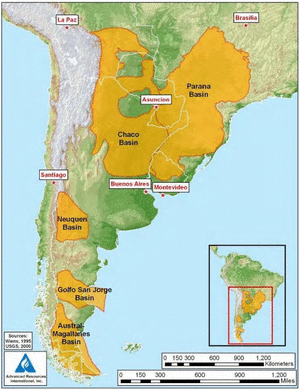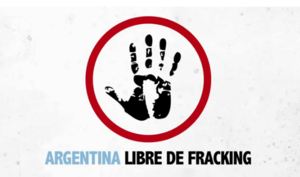In my last post, I suggested that a key issue in Latin American energy politics is the question of national sovereignty and popular democratic control over resource policy. Historically, the left has argued that the assertion of sovereignty over resources is crucial in the political struggle against imperialism and dependence on commodity exports. Extraction of fossil fuels, through this lens, was not in itself a problem. The goal was to use hydrocarbon wealth to restructure unequal economies and promote economic diversification. Sovereign control was seen as the answer to multinational theft.
Yet as Eduardo Galeano wrote in 1977, reflecting on his 1970 edition of Open Veins of Latin America: “Even when the State makes itself the owner of the principal resource of a country, it’s worth asking who is the owner of the State?” Looking at then-recently nationalized Venezuelan oil giant PDVSA, Galeano concluded that “nationalization of resources does not imply, on its own, the redistribution of income in benefit of the majority, nor does it necessarily endanger the privileges of the dominant minority.” In the current era, when much is being said about nationalization, the progressive turn, and “energy sovereignty,” it is worth remembering Galeano's warning that nationalization is not a complete solution.
A look at recent events in Argentina is revealing. In 2012 the Argentine government regained 51% state control of YPF, the oil and gas company that was privatized in 1993 and bought by Spain’s Repsol in 1999. Deemed a move toward soberanía hidrocarburífera (hydrocarbon sovereignty), the expropriation aimed to increase oil and gas production and address Argentina’s balance-of-payments challenge. The “recovery” of state control was accompanied with nationalist fervor and much talk of benefits for the Argentine people.
How to achieve hydrocarbon sovereignty? To the dismay of many, the newly re-nationalized YPF struck a deal with Chevron in July of this year. The central component involves the expansion of natural gas extraction in “unconventional” fields—in other words, the expansion of “fracking.” Dow Chemical, a major petrochemical and industrial consumer of gas, signed on as well. Big agribusiness, like Bunge, also looked to more gas for more fertilizer production. Energy sovereignty makes for strange bedfellows all around. On a recent visit, Ecuador’s President Rafael Correa, waging a campaign against Chevron in his own country, had to mince his words in conversations with President Cristina Fernández, his ally and now Chevron’s newest socio.

And in late November of this year, the handsome 42-year-old Argentine Minister of the Economy, Axel Kicillof, helped set forth another component of the country’s new plans for energy sovereignty and gas extraction, offering incentives for private companies to extract more gas for “injection” into the national supply. Kicillof bears a striking resemblance to Hugh Jackman’s Wolverine. Maybe this is appropriate, since fans see him as a nationalist super-hero.
The Argentine Vanity Fair suggested that the sexy economist is a favorite of President Fernández. Indeed, as Latin American economists go, Kicillof is a mutant. Distinct from the robotic Chicago Boys that one usually encounters in economics circles, he even shares two things with Bolivia’s Evo Morales: he never wears neckties and he eschews neoliberal orthodoxy. He wrote his doctoral thesis on Keynes and, in a seeming challenge to free-market myopia, is credited as an intellectual architect of Argentina’s expropriation of YPF. He speaks often of energy and hydrocarbon sovereignty. And after last month’s festive swearing-in of Kicillof at the Casa Rosada, President Cristina Fernández once again proclaimed that the expropriation of Repsol represented the recovery of “energy sovereignty” for Argentina. Against critics of the Chevron deal, she added, “we’ll associate with” whomever we need to, and do so on terms that are favorable to the country.
Yet fracking deals are—like the gas and oil they ‘produce’—unconventional. A presidential decree was needed to modify laws governing foreign investment to even sign the deal with Chevron. The Chevron contract has not been made public, most likely because the high risk and high cost of fracking operations pressure governments to offer terms that are, in fact, highly favorable to investors, not to the Argentine people.

So, with fracking, at what cost is sovereignty pursued? Fracking uses immense amounts of water, requires infrastructural disruptions across vast landscapes, and produces toxic ‘frack water.’ In the dry lands of northern and southern Argentina, misallocation of water borders on a criminal act. And, while Fernández and Kicillof meet cheering urban crowds, energy sovereignty relies on an extractive project that turns rural regions and indigenous territories into zones of “national sacrifice.” Rather than popular sovereignty, energy independence starts to sound much like what we hear in the United States: more fossil fuels to fuel the economic system. And increasingly, the Southern Cone, Brazil, and much of Bolivia, are now at the epicenter of a coming fracking push, wholly coherent with the United States' pro-fracking foreign policy.
Popular resistance to fracking is expanding, especially in Neuquén, where a multi-sectorial alliance of farmers, environmentalists, and Mapuche organizations are mobilizing in the courts and in the streets. The Observatorio Petrolero del Sur and Argentina Libre de Fracking are spearheading the struggle by informing the public. These organizations are demanding alternative economies, energies, and ecologies. Their key question: “For whom and for what are we producing energy?”

Bret Gustafson (@bretgustafson) teaches anthropology at Washington University in St. Louis. Among other concerns, he studies the politics of energy, territory, and redistribution in Latin America, with a particular focus on Bolivia, Brazil, and natural gas.

